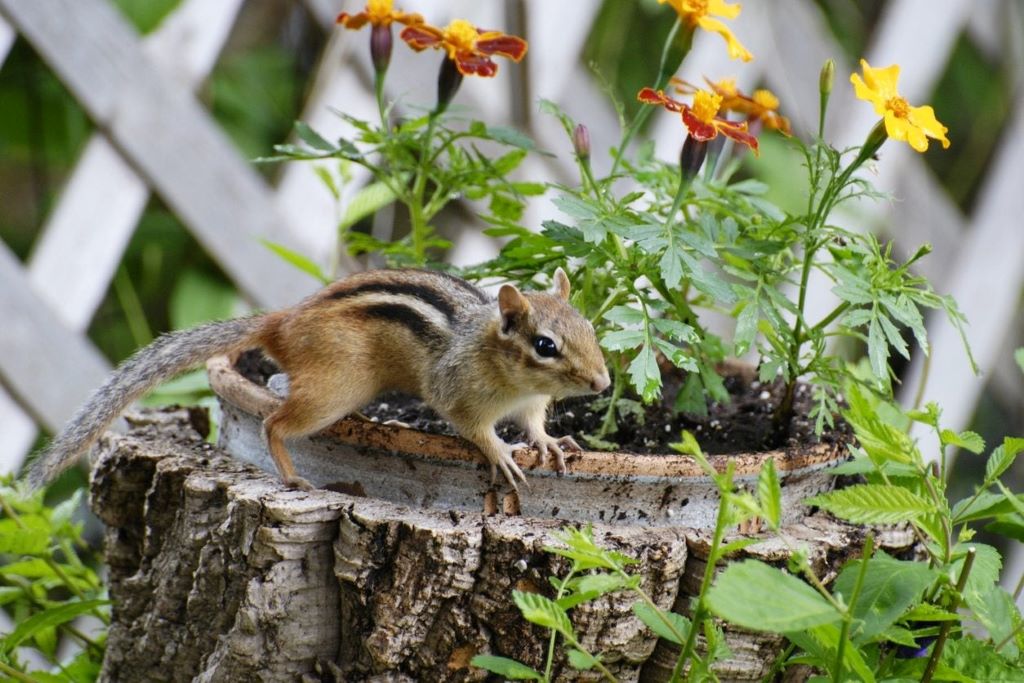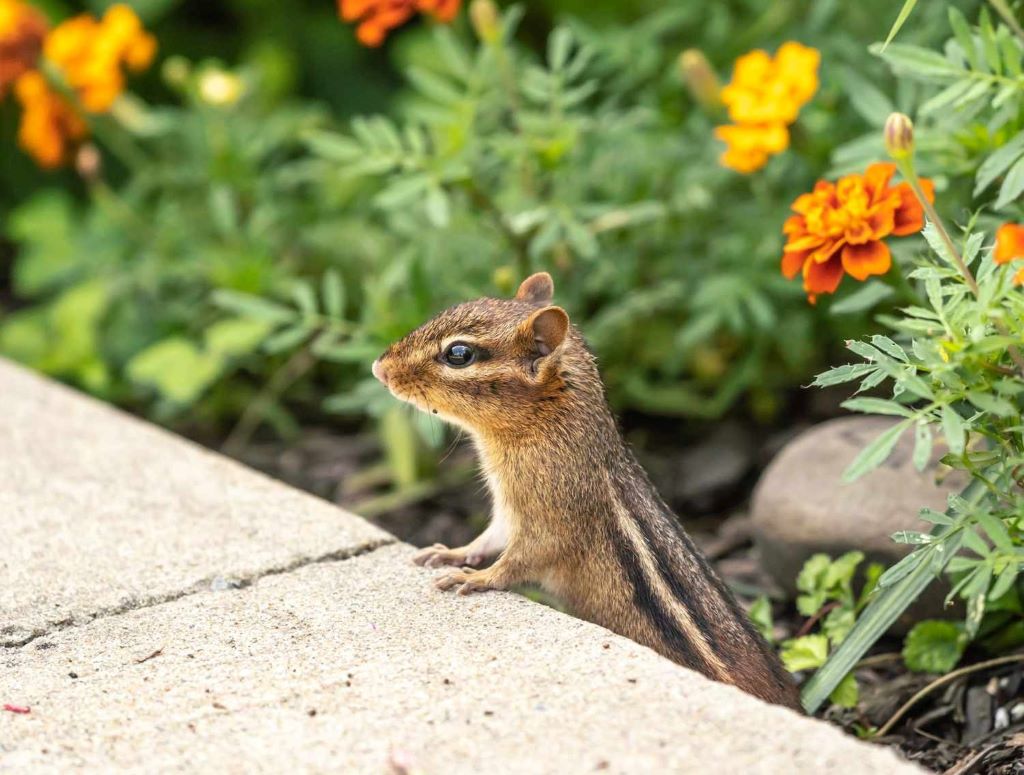Chipmunks may look cute as they scurry across your yard with their striped backs and tiny cheeks stuffed with food. But behind their adorable appearance lies a not-so-charming reality for homeowners and gardeners. Chipmunks can wreak havoc on lawns, flowerbeds, and even home foundations by digging burrows, eating plants, and gnawing on wires. If you’ve noticed these little critters taking over your property, you’re probably wondering how to get rid of chipmunks quickly and effectively.
This guide will walk you through proven strategies to deter chipmunks, remove them from your yard, and prevent future infestations. Whether you want humane methods, natural deterrents, or professional-grade solutions, we’ve got you covered.
Understanding Chipmunk Behavior
Before you take action, it’s important to understand what attracts chipmunks in the first place. Chipmunks are ground-dwelling rodents that dig intricate burrow systems to store food and raise their young. They are opportunistic eaters, consuming seeds, nuts, berries, insects, and even small plants.
Common reasons chipmunks are drawn to your property:
- Abundant food sources (bird feeders, fruit trees, gardens).
- Easy shelter opportunities (rock walls, woodpiles, patios).
- Lack of natural predators in suburban areas.
By identifying what’s attracting them, you can create a strategy that not only removes them but also prevents them from coming back.
Signs You Have a Chipmunk Problem
You might not always see chipmunks during the day, but their presence leaves telltale signs. Watch for these indicators:
- Small holes in lawns and gardens (burrow entrances).
- Disappearing seeds and bulbs from gardens or planters.
- Gnawed fruits and vegetables in your garden.
- Burrow tunnels near foundations, decks, or patios.
- Frequent chipmunk sightings in daylight hours.
Spotting these early signs allows you to act before the problem escalates.
How to Get Rid of Chipmunks: Step-by-Step Solutions
-
Remove Food Sources
The first step is to eliminate what’s attracting chipmunks.
- Use bird feeders with seed catchers to prevent spillage.
- Clean up fallen fruit and nuts promptly.
- Store pet food, grass seed, and other potential food sources in sealed containers.
- Plant chipmunk-resistant plants like daffodils, alliums, and marigolds.
By cutting off their food supply, you’ll naturally make your property less appealing.
-
Seal Entry Points Around Your Home
Chipmunks can dig under decks, patios, and even into crawlspaces. Inspect your home and yard for gaps, cracks, and holes.
- Seal foundation cracks with caulk or steel mesh.
- Place hardware cloth or wire mesh around decks and sheds.
- Cover vents and chimney openings with critter-proof screens.
This prevents chipmunks from nesting too close to your living spaces.
-
Use Natural Chipmunk Repellents
If you’re looking for a humane and eco-friendly solution, natural repellents can help deter chipmunks.
- Spicy repellents: Sprinkle cayenne pepper, crushed red pepper, or garlic powder around gardens and flowerbeds. Chipmunks dislike strong odors and spicy flavors.
- Essential oils: Peppermint oil, eucalyptus, and citrus oils can repel rodents. Mix with water and spray around burrow entrances and garden edges.
- Predator scents: Products containing fox or coyote urine mimic the presence of predators and scare chipmunks away.
Reapply these repellents regularly, especially after rain, for best results.
-
Create Physical Barriers
Preventing access is one of the most effective long-term strategies.
- Install garden fencing with buried mesh at least 6–12 inches underground to block burrowers.
- Use wire mesh or hardware cloth around bulbs and plants when planting.
- Line raised garden beds with hardware cloth to protect roots and soil.
Barriers may take time to install, but they provide lasting protection.

-
Live Trapping and Relocation
If repellents and barriers aren’t enough, trapping may be necessary.
- Use humane live traps baited with sunflower seeds, peanut butter, or fresh fruit.
- Place traps near burrow entrances or along common chipmunk pathways.
- Check traps frequently to avoid harming the animal.
- Relocate chipmunks at least 5–10 miles away from your property (check local wildlife relocation laws first).
Live trapping provides immediate relief but works best when combined with preventative measures.
-
Consider Professional Help
In severe infestations, professional wildlife removal services may be the most effective option. Experts can identify all burrow systems, safely remove chipmunks, and provide long-term prevention strategies tailored to your property.
Long-Term Prevention: Keeping Chipmunks Away
Getting rid of chipmunks is only half the battle—you’ll also want to ensure they don’t come back. Here are preventive steps you can take:
- Maintain a tidy yard by trimming shrubs, cleaning debris, and stacking firewood away from your home.
- Limit ground cover and thick vegetation where chipmunks can hide.
- Continue using natural repellents around vulnerable areas.
- Inspect your property seasonally for new burrows or entry points.
By staying proactive, you can enjoy a chipmunk-free yard year after year.
Humane vs. Lethal Methods: What’s the Right Choice?
When researching how to get rid of chipmunks, you’ll find both humane and lethal options. While poisons and snap traps are available, they pose serious risks to pets, children, and non-target wildlife. Many homeowners prefer humane solutions that control the problem without unnecessary harm.
Additionally, lethal methods rarely solve the issue long-term—new chipmunks may move in if food and shelter remain available. Humane strategies combined with prevention are typically more effective and ethical.
Frequently Asked Questions (FAQs)
- Are chipmunks harmful?
Yes. While not typically dangerous to humans, chipmunks can damage gardens, chew wires, and undermine foundations with their burrows. - What do chipmunks hate the most?
Strong odors such as peppermint oil, garlic, cayenne pepper, and predator scents are highly effective natural deterrents. - Can I use mothballs to get rid of chipmunks?
Mothballs are toxic and not recommended. They pose health risks to humans, pets, and the environment. Use natural or commercial repellents instead. - Will chipmunks go away on their own?
Unlikely. Chipmunks often return to the same safe environment as long as food and shelter are available. Active prevention is necessary. - How do I fill chipmunk holes in my yard?
First ensure the burrow is inactive. Then fill holes with soil, gravel, or a soil-stone mix. Seal the area with sod or plants to discourage re-digging. - Do electronic repellents work?
Ultrasonic devices can deter chipmunks, but effectiveness varies. They work best as part of a broader prevention strategy.
Final Thoughts: Take Action Against Chipmunks Today
Chipmunks may be small, but the problems they create can grow quickly if left unchecked. The good news is that you now know how to get rid of chipmunks effectively using humane, natural, and long-term strategies. From repellents and barriers to trapping and prevention, the right combination of methods will protect your home and garden from further damage.
Related Topics:
Choosing the Right English Labrador Breeder: A Guide for Responsible Puppy Buyers




